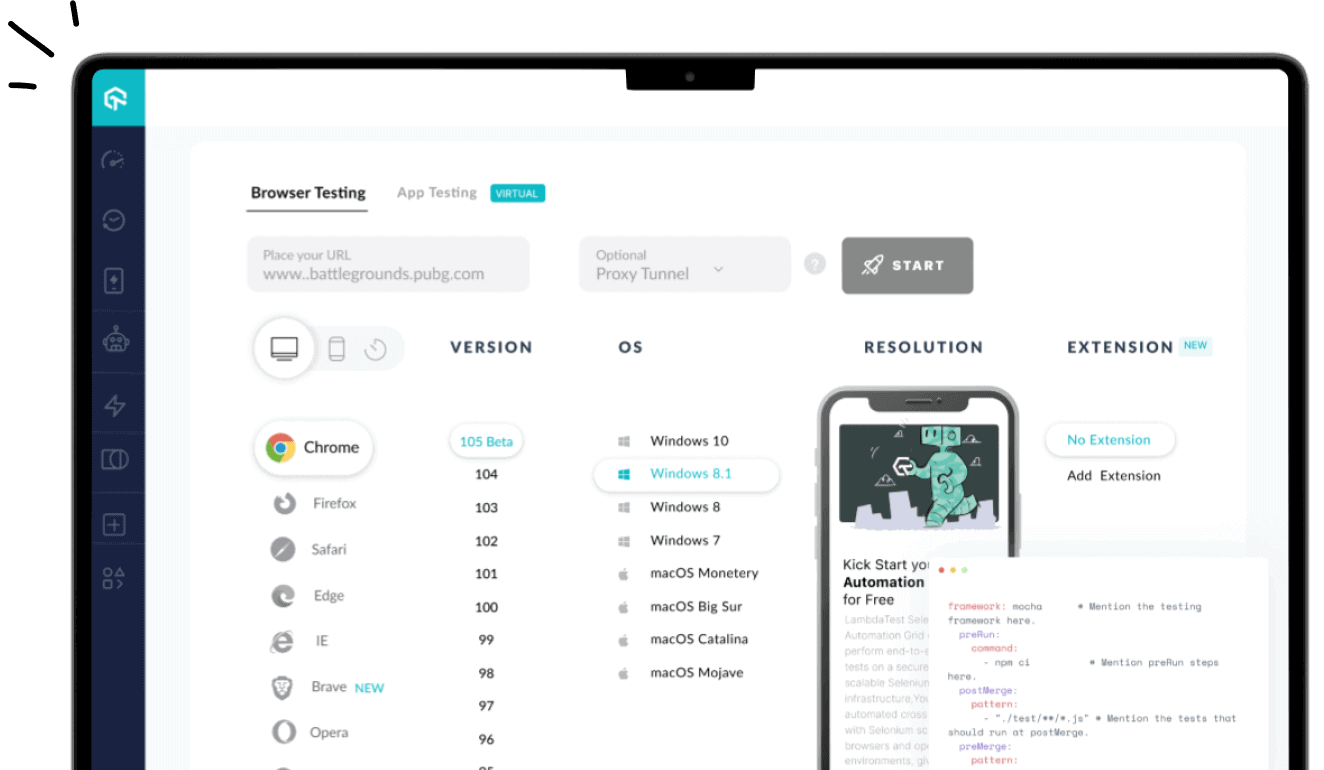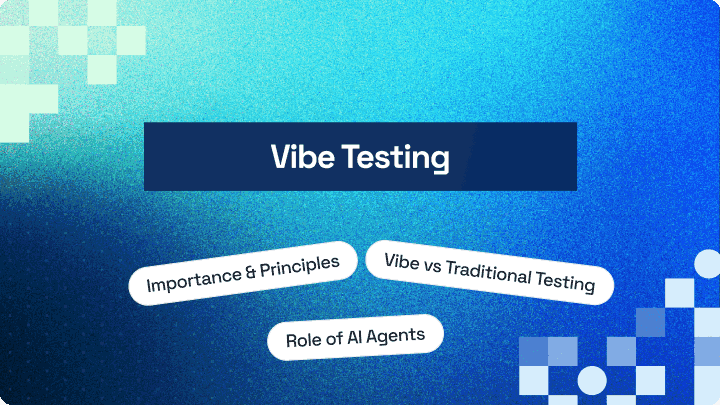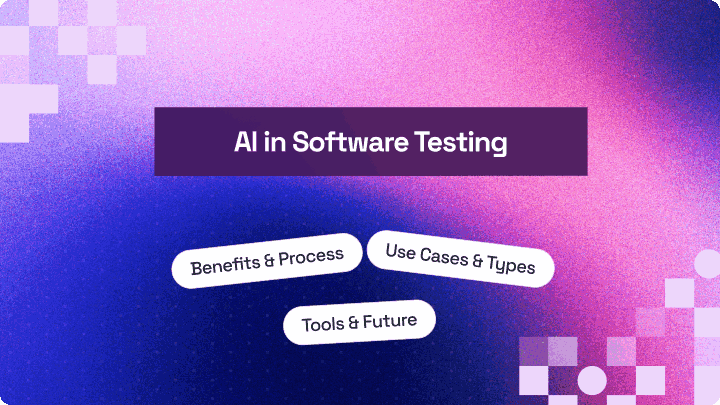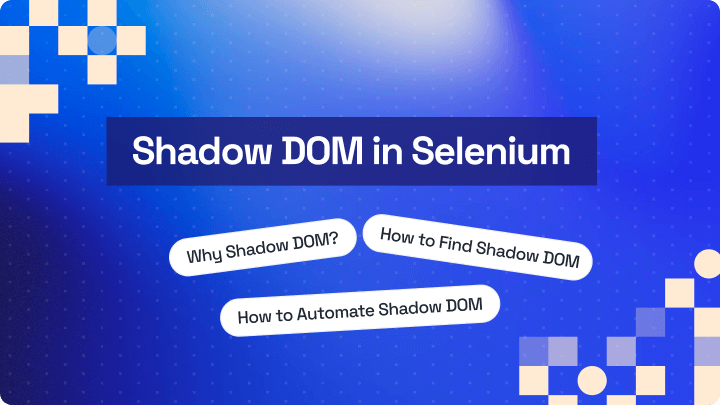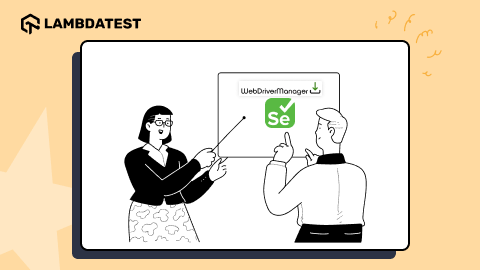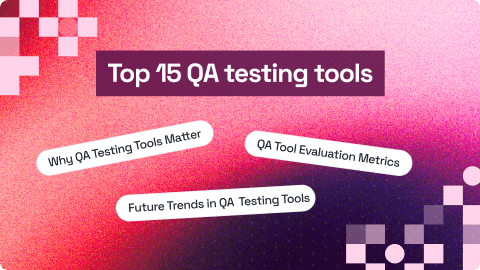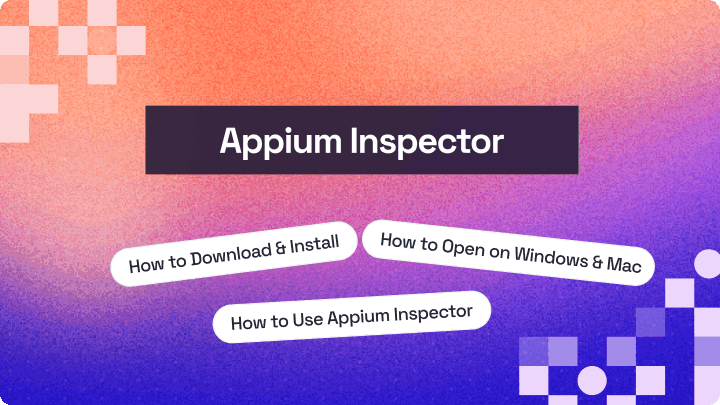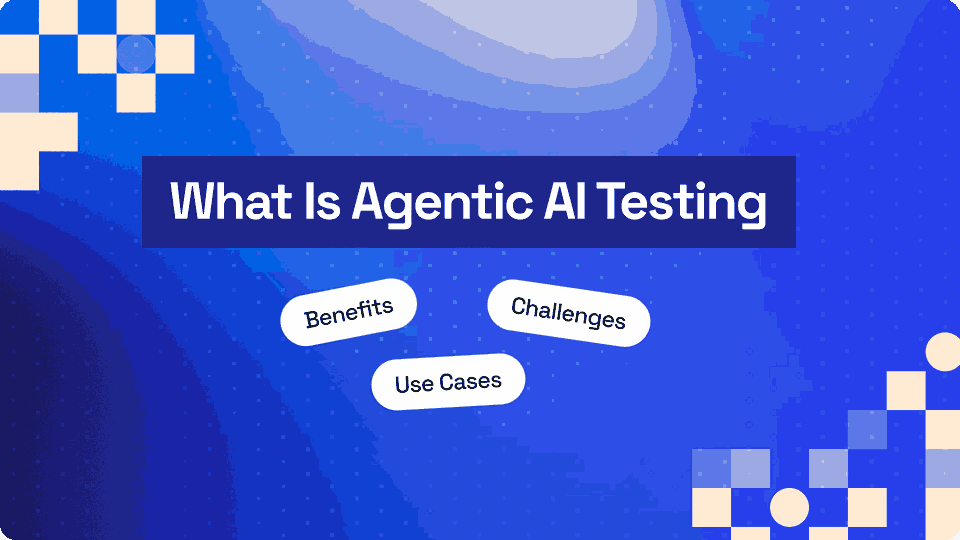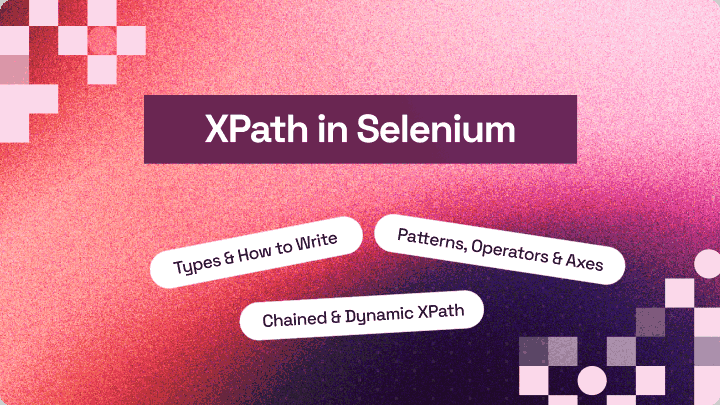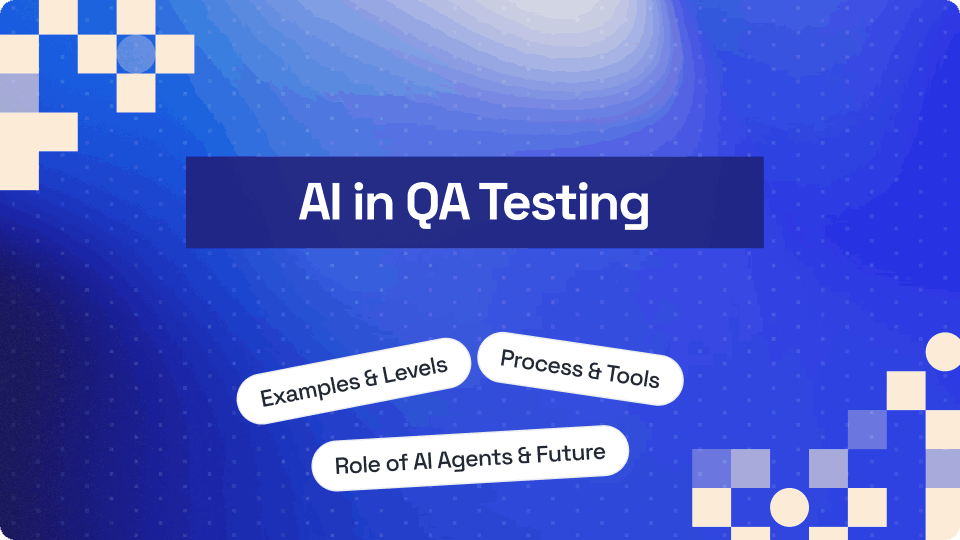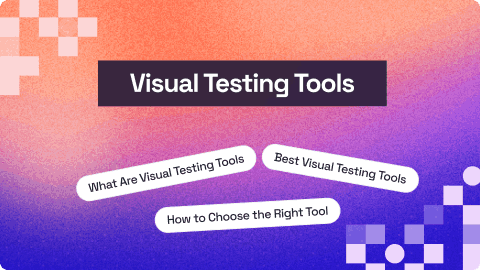19 Best AI Platforms You Must Try in 2025
Zikra Mohammadi
Posted On: July 20, 2025
13 Min
Artificial intelligence is reshaping every industry across various domains. In this transformation, AI platforms play a key role, providing the tools to optimize your workflows. They automate complex workflows, adapt to changing demands, and help you achieve faster and accurate results.
Overview
AI platforms are changing the way we work, create, and automate. They help you speed up workflows, make smarter decisions, and build powerful solutions using natural language and machine learning. From testing to content creation, they’re driving real results across tasks and industries.
Top AI Platform
- LambdaTest KaneAI
- Iguazio
- Databricks
- SAP HANA Cloud
- DataRobot
- PyTorch
- watsonx Assistant
- Alteryx Intelligence Suite
- ClickUp Brain
- TensorFlow
- Gathr
- H2O.ai
- Amazon SageMaker
- RASA
- ChatGPT
- KREA
- Claude
- OpenCV
- Microsoft Azure AI
TABLE OF CONTENTS
What is an AI Platform?
An AI platform is an integrated collection of technologies that understand, process, and generate human-like responses using advanced natural language processing. It analyzes large amounts of data, learns from patterns, and creates responses based on those patterns.
AI platforms harness deep learning models and constantly refine their performance and efficiency, which makes them powerful models that can help increase productivity and decision-making, as showcased in leading AI conferences.
Best AI Platforms
Here are the 19 best AI platforms organizations can use in 2025 to automate tasks, boost productivity, and make smarter decisions:
1. LambdaTest KaneAI
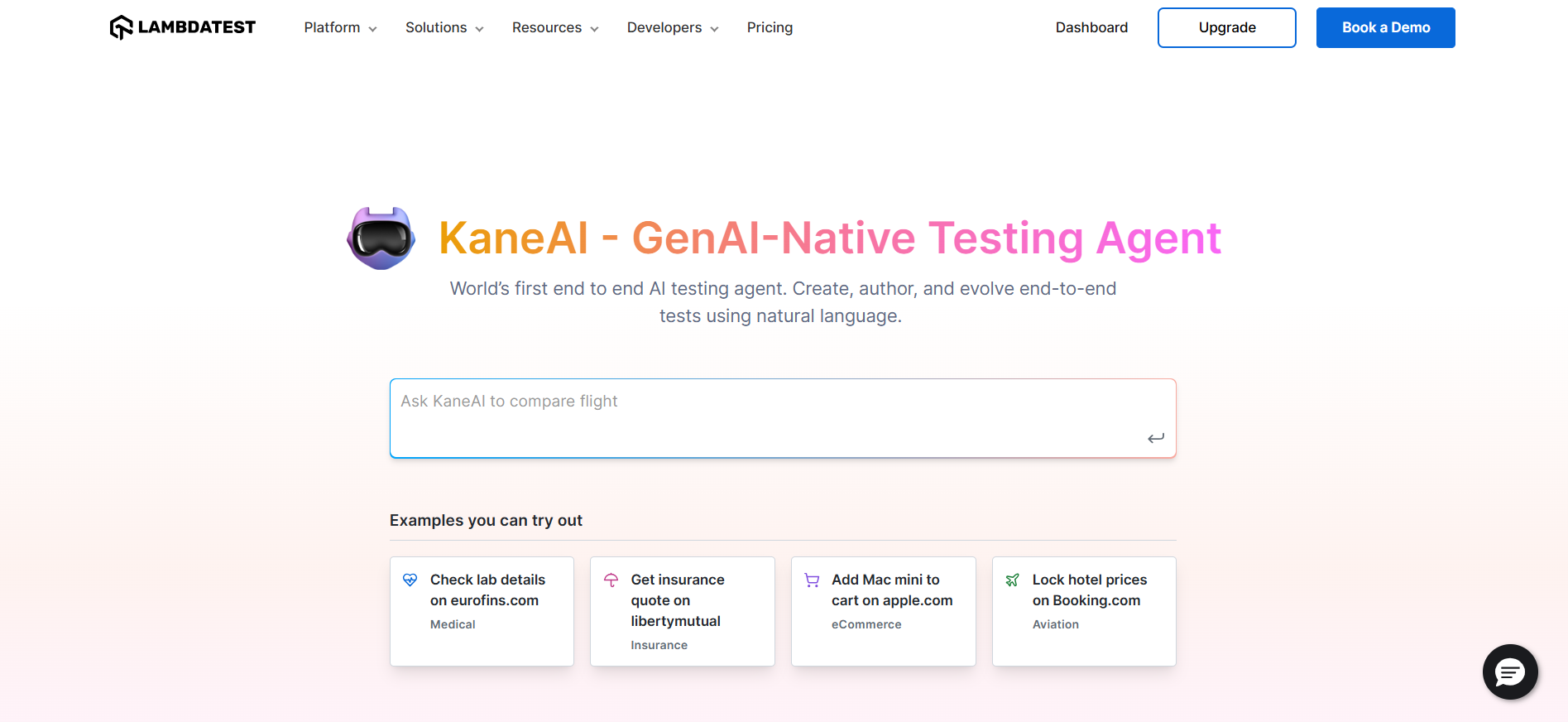
KaneAI by LambdaTest is a GenAI-native test assistant built from the ground up for high-speed quality engineering teams. It features industry-first AI features like test authoring, management, and debugging capabilities.
It enables you to create and evolve complex tests using natural language, significantly reducing the time and expertise required to start using test automation.
Key Features:
- Intelligent Test Generation: Creates and evolves tests through natural language-based instructions.
- Intelligent Test Planner: Generates and automates test steps based on high-level objectives.
- Multi-Language Code Export: Converts automated tests across all major languages and frameworks.
- Inline Test Failure Triaging: Leverages test intelligence to provide root cause analysis and remediation strategies for fixing failing test commands.
With the rise of AI in Software testing, it’s crucial to stay competitive by exploring the top AI testing tools and upskilling or polishing your skillset.. The KaneAI Certification improves your AI testing skills and positions you as a future-ready, high-value QA professional.
Want to explore more specialized tools built for automation? Check out our complete list of Top AI Automation Tools driving productivity across industries.
2. Iguazio

Iguazio platform lets you organize and automate AI workflows, establish security mechanisms to handle risks and compliance issues, launch software applications in any location, and achieve tangible results. With Iguazio, you can bring artificial intelligence to life on a grand scale, all while managing risks.
3. Databricks

Databricks is a data intelligence platform that blends the finest features of data lakes and data warehouses, aiming to slash costs and unify your data approach and AI projects.
Using open-source tools and standards, its Lakehouse architecture streamlines your data environment by breaking down the barriers that have traditionally tangled up data and AI processes. For more tools enhancing such integrations, explore the DevOps AI tools.
4. SAP HANA Cloud

SAP HANA Cloud is a database management system that allows you to create and launch large-scale intelligent data applications. With SAP HANA, you can harness the potential of its multi-model engine to handle various data models such as relational, document store, geospatial, graph, vector, and time series with unparalleled efficiency.
For more insights, explore our detailed guide on AI in data integration.
You can move beyond traditional transactional applications and create innovative applications that leverage GenAI to adapt to different contexts and securely integrate with critical business data.
5. DataRobot

DataRobot offers an AI platform that empowers businesses with powerful solutions while minimizing risks. It leverages AI and advanced machine learning that lets organizations automate tricky tasks, fine-tune decision-making processes, and extract actionable insights from their databases.
This AI platform is all about tackling real-world problems head-on and ensuring that it works as intended with existing workflows.
6. PyTorch

PyTorch is an open-source machine learning library for building deep learning models. Primarily coded in Python, it also offers interfaces in Java and C++.
For natural language processing tasks, PyTorch is vital for analyzing and understanding text. It also proves valuable for analyzing images and videos to develop models with object recognition capabilities.
7. watsonx Assistant

watsonx Assistant by IBM that assists businesses in creating top-notch virtual agents that boost efficiency and offer super-smooth self-service interactions.
Its user-friendly interface helps you easily craft engaging conversations with just a few clicks with its drag-and-drop conversation builder and ready-made templates.
This AI platform fully uses the latest technologies, including advanced large language and large speech models and powerful NLP and NLU capabilities.
8. Alteryx Intelligence Suite

Alteryx Intelligence Suite provides you with an AI platform for enterprise analytics, enabling the automation of analytics to produce actionable insights.
This lets you extract information from auto-generated PDFs. You can also leverage the powerful Optical Character Recognition (OCR) capabilities of Google Tesseract for extracting content from the images in the document, such as invoices, business cards, and forms.
9. ClickUp Brain

ClickUp Brain is changing the landscape of team collaboration. By incorporating a neural network that links tasks, documents, individuals, and organizational knowledge with advanced AI capabilities, ClickUp Brain is reshaping how work gets done.
This AI platform smoothly connects with some of the most popular apps, such as Google Drive, GitHub, and Salesforce, to provide a unified workspace that fulfills all needs.
10. TensorFlow

TensorFlow truly makes the task of creating machine learning models easy, allowing them to operate smoothly on different platforms, be it cloud servers or mobile devices.
It has a user-friendly interface that allows you to create, train, and deploy models quickly. TensorFlow offers practical experience for grasping important ideas and executing complex ML processes most efficiently by providing useful snippets of code.
11. Gathr

Gathr is a cloud-based platform that lets you handle vast amounts of data effortlessly without coding. This AI platform allows you to create machine learning-driven applications that convert data into valuable results.
From gathering and reshaping data to uncovering insights, making predictions, and offering recommendations, Gathr covers it all. It boasts top-notch features suitable for enterprises, including robust capabilities in integrating data, implementing machine learning models, and more.
12. H2O.ai

H2O.ai stands out as a prominent provider of open-source Generative AI and machine learning platforms. Leveraging insights from 30 Kaggle masters, they provide intuitive AI cloud solutions built around GenAI and machine learning and solve real-world challenges like a breeze.
Stakeholders, community members, and partners are at the forefront as the strategic supporters of H2O.ai to create a positive impact of AI.
13. Amazon SageMaker

Amazon SageMaker offers a holistic environment for analytics and AI, granting you streamlined access to all your data. It offers a collaborative space where you can expedite development within a unified studio (currently in preview mode).
You can leverage the familiar tools of AWS for creating models, Generative AI, data manipulation, and SQL analytics. Plus, you can effortlessly tap into your data from various sources like data lakes, warehouses, or third-party/federated databases.
14. RASA

RASA allows you to create AI assistants using a conversational AI platform with a user-friendly, no-code interface. It offers automation and intelligent interactions to build AI-driven solutions based on your needs.
It has NLP features and supports integrations to enhance engagement, streamline operations, and drive innovation.
15. ChatGPT

ChatGPT is an AI platform developed by OpenAI. It functions as a virtual assistant capable of engaging in human-like conversations, generating content, assisting with coding, and providing research insights.
It can help with tasks such as summarizing information, debugging code, and drafting technical documentation. As an AI platform, ChatGPT enhances productivity by automating responses, streamlining workflows, and offering real-time assistance across various domains.
16. KREA

KREA is an AI platform that makes it easy to create and enhance images and videos. With just a text prompt, you can generate high-quality visuals in seconds.
It has features to refine and customize your content. Also, you don’t need to have advanced skills. The AI takes care of the complex work, allowing you to focus on creativity and bring your vision to life effortlessly.
17. Claude

Claude is an AI assistant developed by Anthropic to make everyday tasks easier. If you need to summarize articles, refine your writing, find answers, brainstorm ideas, make decisions, or even generate code, Claude is there to assist. It adapts to your needs, helping you work smarter without the complexity of traditional AI tools.
18. OpenCV

OpenCV, the leading computer vision library globally, is backed by the non-profit Open Source Vision Foundation.
With a suite of more than 2,500 algorithms at its disposal, OpenCV empowers functions such as image manipulation and detecting objects & faces. Embraced by countless researchers and programmers alike, this tool sets a sturdy groundwork for crafting cutting-edge computer vision solutions spanning diverse sectors.
19. Microsoft Azure AI

When it comes to scaling up Generative AI, look no further than the Microsoft Azure AI platform. It provides top-notch security measures, cost-effective deployment options, an impressive 99.9% SLA, and innovative ways to tailor models and develop agents like never before.
Generate AI-native test cases with Test Manager. Try LambdaTest Today!
Conclusion
As AI continues to evolve and push the boundaries for the future of technology and business, it becomes imperative that the right AI platform be selected in order to stay ahead of the competition.
In areas like software testing as well, AI is driving a major shift, as highlighted in our blog on Traditional Testing vs AI Testing.
These platforms are also accelerating AI in Data Integration, enabling smarter, automated workflows across diverse datasets.
There are also dedicated AI tools that focus specifically on helping developers and DevOps, here are the best AI tools for developers and Top DevOps AI Tools.
Frequently Asked Questions (FAQs)
What are AI platforms?
AI platforms are integrated systems that help build, train, deploy, and manage AI models. They combine tools for data processing, automation, and monitoring in one place to streamline AI development.
Who uses AI platforms?
AI platforms are used by data scientists, machine learning engineers, developers, and businesses looking to integrate AI into their products or workflows.
What is the best AI platform?
The best AI platform for you depends on the use case. A few of them are listed below:
- LambdaTest KaneAI: For AI-native automated software testing across browsers and devices.
- ChatGPT: For generating human-like content, answers, and ideas using natural language.
- Midjourney: For creating high-quality AI-generated images from text prompts.
- Amazon SageMaker: For building, training, and deploying machine learning models at scale.
How do AI platforms help businesses streamline operations?
AI platforms automate tasks, analyze data faster, and make smart decisions, reducing manual effort and improving productivity across teams.
How secure are AI platforms for handling sensitive data?
Most AI platforms offer built-in encryption, access controls, and compliance features to protect sensitive data and ensure privacy.
What is agentic AI?
Agentic AI is a type of AI that can make decisions, take actions, and complete tasks on its own to reach a goal. like booking your trip after you say “Plan my visit to New York,” or automatically running software tests when you update your code.
How is agentic AI different from generative AI?
Generative AI creates content based on your input, like text, images, or code. Agentic AI goes further by taking actions and making decisions to complete tasks on its own. The difference is generative AI creates, while agentic AI gets things done.
Author

